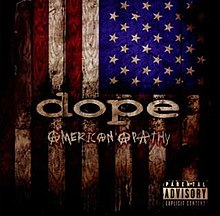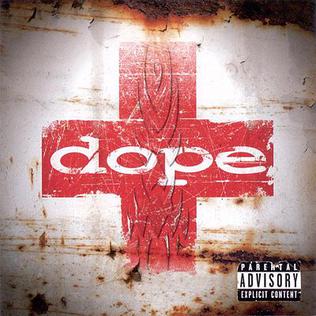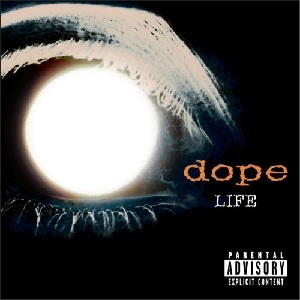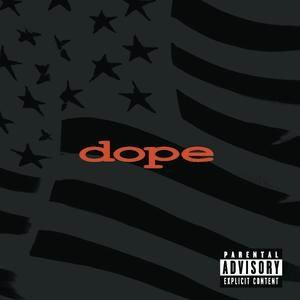 Welcome back to my monumental task, where I review every Dope studio album ever. Today’s entry is admittedly, a sentimental one for me. This is the album that ignited my interest in Dope, an interest that still burns strong to this day. That’s right, we’re shining the spotlight on Dope: American Apathy.
Welcome back to my monumental task, where I review every Dope studio album ever. Today’s entry is admittedly, a sentimental one for me. This is the album that ignited my interest in Dope, an interest that still burns strong to this day. That’s right, we’re shining the spotlight on Dope: American Apathy.
American Apathy was released on July 26, 2005 via Artemis Records. Edsel Dope stated in interviews from the time that this was a very tongue and cheek album that wasn’t actually taking itself too seriously. True to form, this went completely over the heads of critics. A contemporary reviewer for Blabbermouth.net illustrates this perfectly, stating that American Apathy is “difficult to take seriously.”
Which brings me to different, but no less relevant point. Reading all these reviews, it often feels like Dope has been judged less on their own creativity and more in comparison bigger acts of the time – be they Marilyn Manson, Nine Inch Nails, Korn, whoever. With my EDSAE series, I aim to change that. I am reviewing Dope’s music on its own merit, and not comparing them to other acts of the time.
What sets American Apathy apart isn’t just its bold sound; it’s the sharp, cutting commentary embedded in its lyrics. That’s where Cristina’s insight takes the stage. So let’s get into it. Let’s bring in the angst for American Apathy.
Cristina’s POV
American Apathy is lyrically dark and political. The title speaks for itself, capturing the feeling of apathy towards government, war, and societal norms. Songs like “No Way Out” and “Revolution” scream of disillusionment and rebellion, taking a hard look at the system and flipping it the bird. There’s an obvious anger toward the political climate of the time, with a lot of that venom directed to then president George W. Bush.
Listening to American Apathy in today’s polarized political climate makes its message feel even more relevant. The apathy and anger Edsel Dope directed at the system in 2005 resonate now with even greater intensity, reflecting the widespread disillusionment and political frustration of 2024.
Edsel’s vocal delivery on this album is a potent mix of sneering sarcasm and unfiltered rage. His ability to shift between scathing verses and more melodic choruses brings a dynamic edge to the album. Despite the album’s rawer, grungier feel, there’s a precision to the musicianship that keeps the songs tight and impactful.
Standout tracks on this album are Survive, No Way Out, and Always. These three tracks run the gamut between seething anger, defiance and loss, showcasing something that’s not often brought to the conversation about Dope: their range. Always, in particular, showcases a more vulnerable side of the band, with its somber tone and introspective lyrics contrasting sharply with the seething rage of Survive. It’s moments like these that remind listeners that Dope isn’t just about aggression—they can pull off a range of emotions without losing their edge.
Cristina’s Verdict
In hindsight, American Apathy stands as one of Dope’s boldest statements. Its blend of unfiltered anger and sarcastic defiance feels just as potent in 2024 as it did nearly two decades ago. Though it’s not often brought up in the conversation of Dope’s catalogue of music, maybe it’s time we did. This is an album well worth a revisit, and is still 100 percent relevant to this day.
 Hello folks, sorry for the wait! Today’s update will see us continuing our series of Cristina reviewing every Dope studio album ever. And it’s a good one, guys. It’s #2 on our three best Dope albums: it’s the one and only Group Therapy.
Hello folks, sorry for the wait! Today’s update will see us continuing our series of Cristina reviewing every Dope studio album ever. And it’s a good one, guys. It’s #2 on our three best Dope albums: it’s the one and only Group Therapy. This is Life…
This is Life…
